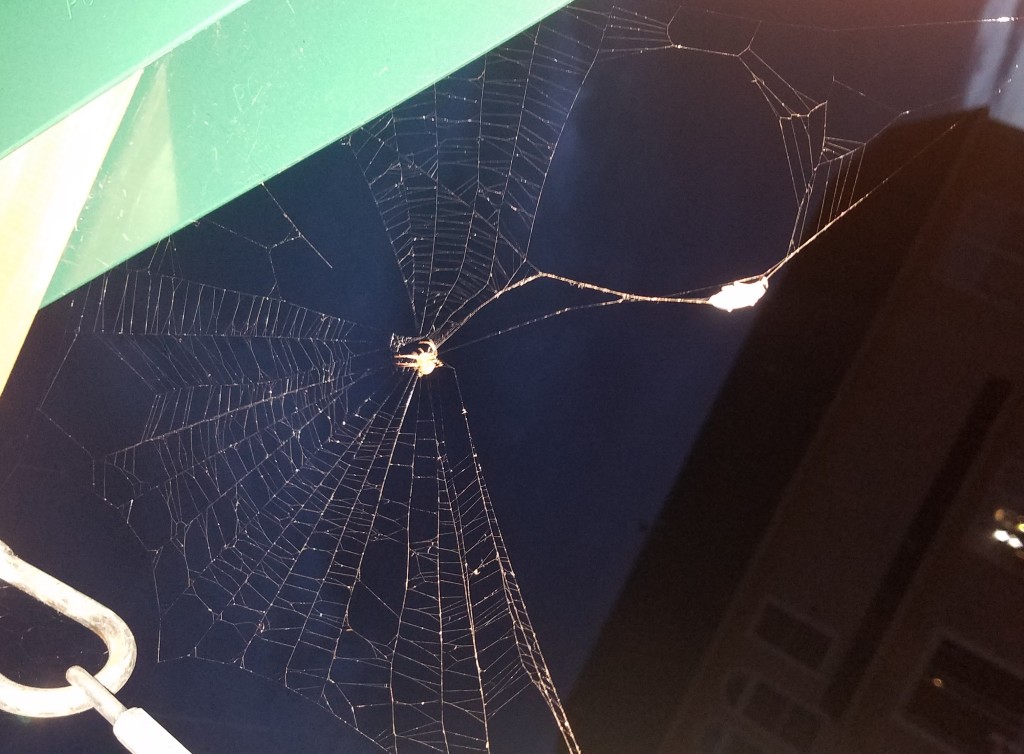Welcome to the Spot Writers. This week’s prompt is “a cat always stares at something behind its owner’s back. What does it see?” Today’s tale comes to us from Val Muller, author of The Girl Who Flew Away and lots of other works for children and young adults.
Promise
By Val Muller
Meowser always ignored me. Always used to, anyway. He had his own existence, and I had mine. I kept him fed, he kept me company. That was the deal, until my sister was able to take him home again.
Ellie was off for a three-year stint in Italy. Her husband was put on temporary duty there. Rehoming the cat, with all the required paperwork, quarantines, and the like, wasn’t up her alley, so she pushed the cat onto me.
I always pictured myself as a dog person, if I had a pet, that is. I mean, if I had one of my own. But here I was, just out of college. I couldn’t even keep a girlfriend for more than a month.
Ellie handed Meowser over right before she left. “He won’t be any trouble,” she said. “I promise.”
Ellie didn’t say goodbye to Meowser. That always struck me. I guess she didn’t want to cry about it. No need to make goodbyes more sentimental than they need to be. We fell into our ways, Meowser and I. Ellie couldn’t get back at Thanksgiving, so I sent her a picture of the cat sitting on the coffee table eyeing the ample feast. Ellie always got a kick out of things like that. She liked coming up with captions that assigned all kinds of human thoughts to the cat. I probably sent her a picture once a week or so. She posted them on Facebook, too, as if the cat still lived with her.
To me, though, a cat is just a cat. Meowser couldn’t care less about me except when it was feeding time, or if I got lazy cleaning out the litter box.
Ellie made it back during Christmas. Steve flew home to Minnesota, and she flew in to BWI to visit us. She stayed at my place, not Mom and Dad’s, and we all knew it was for Meowser. I don’t really buy the whole animals-have-emotions thing. Didn’t, anyway. But as soon as he saw Ellie, Meowser was a different cat. It wasn’t just that the two were inseparable. They anticipated each other. Meowser would hop off her lap ten seconds before she finished eating. When she’d get up for a glass of water, Meowser was already waiting at the kitchen counter. He was there when she went to the bathroom, to the door, to the couch. At the time, I told myself they were both just really good at reading body language.
Meowser turned psycho the morning Ellie left for Italy again, right after New Year’s. He hissed at shadows in the hallway. He clawed my face—I’ll bear his mark for life, three slashes on my right cheek. And he even bit Ellie. She cried, then, looking at Meowser like he’d betrayed her. Something in Meowser—a look, a feeling—made Elli’s face flush with guilt. “I’ll be back, Meowser. I promise, promise. I’ll come back for you.”
She pressed her forehead to his and paused for several moments. The cat seemed to calm. Then he went about his way, not bothering to watch as she left the apartment. Her promise had calmed him. We lived on, the two of us, for three more months of him ignoring me and me feeding him, waiting until Ellie could take him again.
It wasn’t until last night that Meowser stopped ignoring me. He was sitting on my chest when I woke up. I can’t tell you the adrenaline spike caused by the penetrating green eyes of a cat. Only they weren’t penetrating me. No, they were focused behind me, like on my pillow. Fixated. A focused stare and a blank stare all at once.
I knocked him off me and padded to the kitchen to feed him. But the usual tinkle of food into his dish had no impact. He sat instead on the counter, staring right behind me. We sat there until dawn, him freaking me out and staring and me being freaked out and staring back.
When the sun rose, I left the kitchen to get dressed, and he followed. Freaky cat. I bent down to pet him, and he raised his head toward my hand—but he missed. Only it seemed intentional. He was raising his head to be pet, only he was raising it at something directly behind me. I turned around, half expecting someone, but of course there was no one.
Freaky cat.
I pushed him away with my foot and closed the bedroom door to finish dressing, but his insistent meowing unsettled me. I opened the door to shush him, but his let out a wailing cry at the empty space behind me.
I turned on the TV to drown out the caterwauling. It was a commercial for an HVAC company, a terrible and memorable jingle. I sang along. It silenced the cat, but still Meowser stared behind me.
I thought I saw something walk across the room behind me, a reflection moving across the mirror. But when I turned, I was still alone.
A pizza commercial came on, but my usual appetite sparked by those kinds of commercials had diminished. I didn’t even want breakfast. I picked up the phone to call Mom. Something came over me, and suddenly I had to get Meowser out of my apartment. Surely Mom and Dad could keep him for Ellie.
The phone rang before I could dial, making me jump half out of my skin and drop it on the carpet. Meowser didn’t even flinch. Just kept staring.
It was Mom.
“Baby, turn on the news,” she said.
The news was already on—the pizza commercial had dissolved into a breaking story of a terrorist attack in Paris. A coordinated attack of vans and trucks driving into crowds. The confirmed death count was twenty-two and counting.
“I called Ellie as soon as I saw,” Mom said. She was sobbing. “She didn’t answer. Steve, either.”
“Mom,” I said. “Ellie’s in Italy. Paris is in France.” My mind briefly relaxed, worried only about Mom possibly having a senior moment.
“No, honey. Ellie’s there. Steve is on leave, and the two of them went to France. They were touring the city today and tomorrow.”
“They could still be out touring,” I said. “I mean, do their phones even work in France? I think calls are super expensive. They probably have their phones off. You know, so they can concentrate on their tour.”
But even as the words left my mouth, I knew the worst was true. I knew it because Meowser knew it. The cat’s eyes softened as the realization hit me. Ellie was no longer in Italy. She was no longer in France. Meowser meowed again and ducked his head toward the shadow behind me. His beloved Ellie. She always kept her promise.
The Spot Writers—Our Members:
Val Muller: https://valmuller.com/blog/
Catherine A. MacKenzie: https://writingwicket.wordpress.com/wicker-chitter/
Phil Yeats: https://alankemisterauthor.wordpress.com
Chiara De Giorgi: https://chiaradegiorgi.blogspot.com/
 I had purchased this book after hearing the author speak at a conference a few years ago. I’d forgotten about it and needed a quick read I could focus on while watching the kids this summer. While this is the third in a series, I had not read the other two: I chose this one after hearing the author speak about the mathematical elements of the novel. Calder, the protagonist, uses pentominoes (you can see an overview of what they are here: https://en.wikipedia.org/wiki/Pentomino; think Tetris) .
I had purchased this book after hearing the author speak at a conference a few years ago. I’d forgotten about it and needed a quick read I could focus on while watching the kids this summer. While this is the third in a series, I had not read the other two: I chose this one after hearing the author speak about the mathematical elements of the novel. Calder, the protagonist, uses pentominoes (you can see an overview of what they are here: https://en.wikipedia.org/wiki/Pentomino; think Tetris) .

